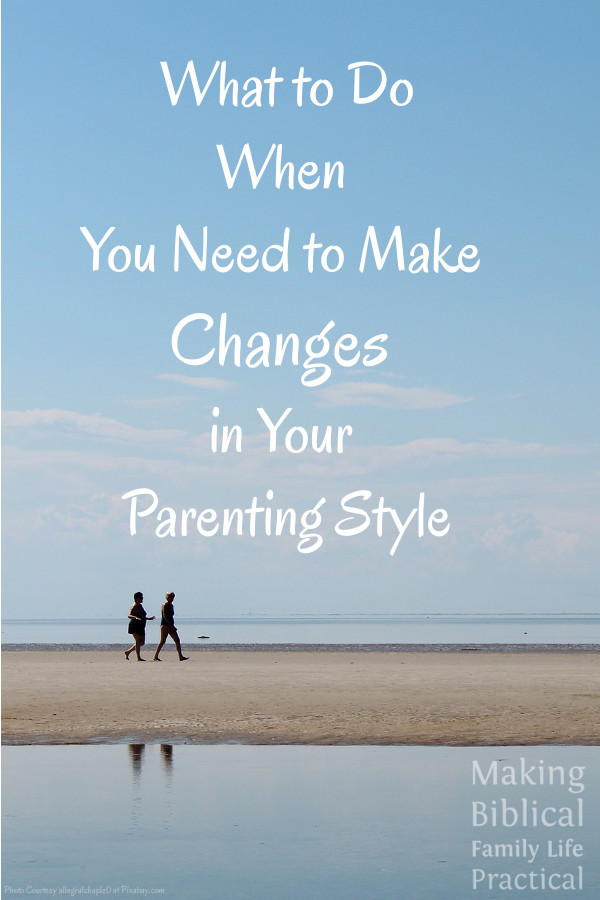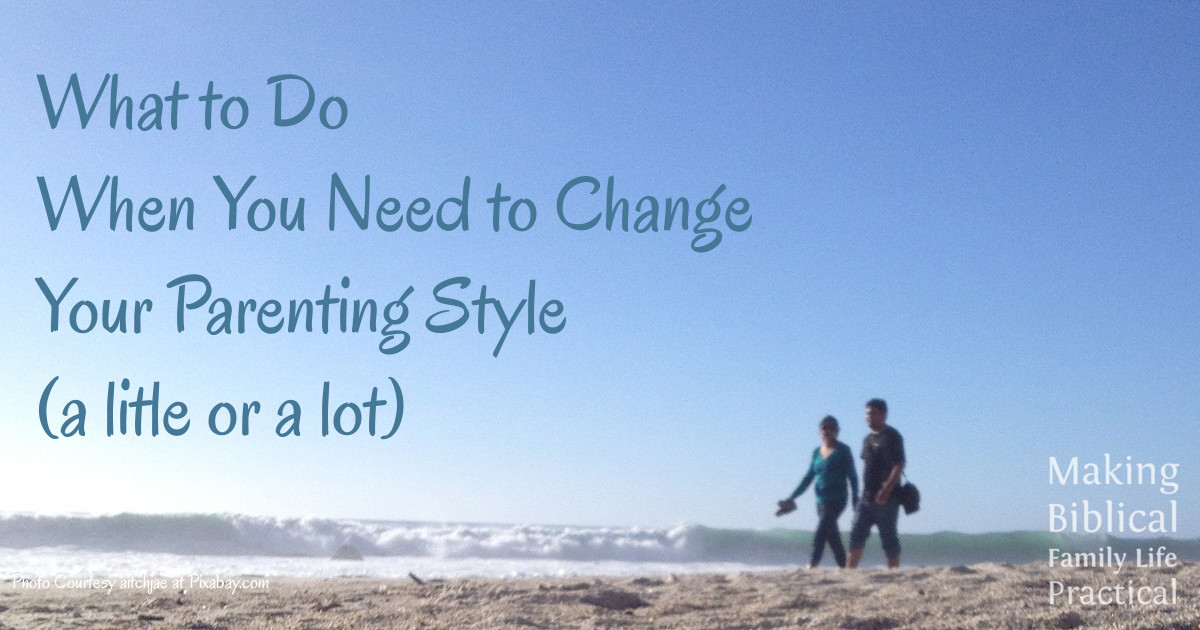Four Reasons You Need to Change Your Parenting Style
Our oldest son shook his head, sadly.
“You never would have let me do that,” he said, watching a younger sibling.
We had to admit, he had a point. When he was that age, we were new parents, full of theories but short on experience. He was Offspring 1.0, and parenting was still something of a beta-test experience.
Looking back now on more than 25 years (and eight kids) of being Mom and Dad, we realize there were several points where our parenting philosophy changed – and needed to!

We changed when we realized we weren’t doing it right. Eldest son wasn’t old enough to remember what he did get away with, as a toddler. We were Christians from the start but we wanted to explain everything to our little guy, as if he’d say, “Oh! I get it! Of course that’s what I should do!” And at a critical time, we moved to a community which took a very critical view of any kind of correction of a child. By the time he was three, he was so undisciplined he was nearly unmanageable. Our pastor very politely shared some Biblical advice about balanced, loving, but purposeful direction—and we found life was much smoother with our younger kids!
This can go either way. Sometimes you start off so permissive your children aren’t being trained at all; other times, you may be so rigidly disciplinarian that children feel little love and much repression at home. The Gen2 Study last year found that young adults who experienced consistent, loving discipline as children were more likely to have a strong relationship with their parents and continue in the faith as grownups than children of parents at either extreme.
We changed when our family changed. We were blessed with six boys, one after another, and our parenting style was very boy-directed – firm, direct, challenging as much as affirming. Then God sent us girls, and we found the emphatic directions we gave the boys (“Hey! Don’t touch that stove!”) often startled or frightened the sisters. We had to learn a more gentle approach to guide our more-compliant children (i.e. the girls).
We also realized as the family grew, we didn’t have the luxury of spending every minute focused on one or two very little children. To keep the house and family on track, we had to learn how to give the older kids an appropriate level of self-direction and responsibility; Mama can’t always jump up to respond to other children when she’s nursing a baby!

We changed as we grew in experience and maturity ourselves. People laugh about how uptight they were handling their first baby, and how relaxed they were with the third or fourth one. Is it because experienced parents don’t care any more? Or babies born later are less demanding? Are we like Jacob who showed ungodly favoritism toward his youngest sons Joseph and Benjamin – with sad results?
Or is it because being a parent becomes easier as you gain wisdom and perspective? Of course you parent your youngest child differently than you did the first one – that means you learned something along the way!
And very importantly, we changed when our children changed. A pre-schooler needs very clear direction and consistent consequences for disobedience. A 9- or 10-year-old needs a lot of guidance, and not much independence. But a teenager is in the transition from childhood to independent adulthood – as we’ve said, we consider our young teens as “adults, in training” – and we the parents need to change from control to advice. You don’t expect to boss your 25-year-old the same as your 5-year-old, do you? The change in relationship needs to happen over the teen years, not as a thunderclap on their eighteenth birthday.
Most parents with more than one child have probably heard that complaint – that younger siblings get away with things. Did we change our parenting style? Should we? You bet – with good reason!
Now, how do you carry out that change without causing anger and resentment in your kids? Listen to our podcast on this subject!
Your Friends,
Hal & Melanie